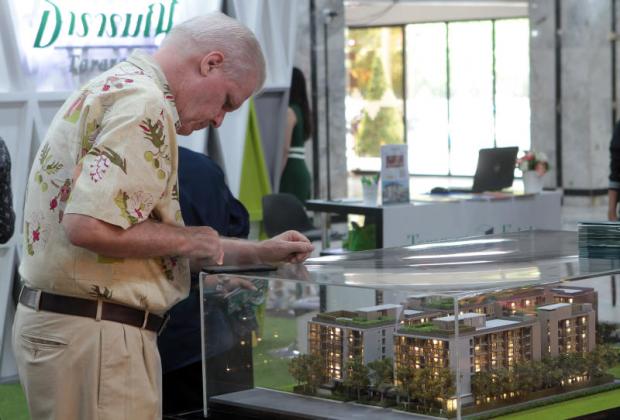
Connected living will be a new trend for real estate development, with a focus on healthcare and wellness because Thailand is an ageing society, though the key consumer group will be millennials, industry analysts say.
Wei Siang Yu, chairman of healthcare technology and service provider Borderless Healthcare Group, said real estate is about to be transformed from 4.0 (smart living) to 5.0 (connected living).
"The next wave coming up is condos with connected services," he said. "Most buyers of new homes today are in their 20s, 30s or early 40s. They are IT-savvy and live in an age in which services come to them."
Mr Wei said real estate will no longer be dominated by 99-year leasehold contracts because this is a sharing economy with co-living and co-working spaces.
"More than half of millennials prefer buying three 33-year assets in various locations like one in Bangkok, one in Phuket and one in Khao Yai, than buying one 99-year asset somewhere," he said. "They want services."
The key consumer group will be millennials, Mr Wei said. Many have young children, but also parents over 60. They need to buy something relevant to their parents, he said.
In the hospital sector, it will take a few years to build a hospital on empty land, a further few years to build a brand name and an additional four to five years to bring in more patients.
With cloud-based services, hospital investors, while building a hospital or before, can have a group of top-class, internationally renowned medical experts converging with local doctors with the multilingual video call centre.
"Forget about launching a hospital. Forget about a smart hospital," Mr Wei said. "With this system, you are launching a connected hospital because it already has a database of people who can connect with the hospital at home.
"Hospitals will no longer be valued by the number of beds, but rather the number of consumers the hospital connects or families it is serving. Electronic medical records are already old-school. Healthcare data belongs to the consumer."
He said malls should stop adding food courts if they are losing retail tenants, instead focusing on high-tech medical centres.
The supermarkets of tomorrow will be not passive, Mr Wei said. They want to be involved with people's lives. The food cloud will be connected to a blockchain farm, the internet or nutritionists around the world, allowing people to learn about and offer personalised recipes.
Hotels can make revenue from other services with connected-living tech like a medical consultancy. Guests can talk to the doctor in a hospital via connected devices like the TV screen.
"The next big things to transform the hotel sector will be property technology [proptech] and wellness," said Suphin Mechuchep, managing director of property consultant Jones Lang LaSalle Thailand.
Proptech, in which global investment will reach US$65 trillion by 2020, will include face recognition for a hotel check-in or opening the door of the hotel room, or even concierge robots.
Chatbots and artificial intelligence can provide a quick response to improve services, while the Internet of Things will be used in a device such as a sensor to detect and manage inside and outside temperatures for energy conservation.
"Many hotels apply visual reality for in-room entertainment or games and to give the guest an experience of a 360-degree view of the hotel or room before making a reservation," Mrs Suphin said.
Big data is also used as a marketing tool, and augmented reality lets guests easily find things that match their lifestyle or expectations.